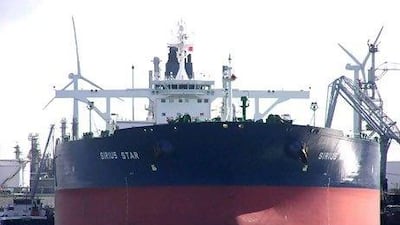Saudi Arabia's largest tanker owner is likely to experience diminishing revenue in the third quarter as a result of lower shipping rates.
National Shipping Company of Saudi Arabia (NSCSA) operates 17 very large crude carriers(VLCCs) as well as 13 chemical carriers through its 80 per cent stake in National Chemical Carriers.
The company's mixture of spot and charter shipping arrangements works as a hedge in a low-rate environment, allowing it to take advantage of high spot rates.
But a critical oversupply of VLCCsand weak demand in developed markets have hit shipping rates and put pressure on the sixth-largest operator in the world.
"These factors and increasing bunker fuel costs have left shipping players around the world in an awkward situation, especially a player like National Shipping Co of Saudi, which operates 70 per cent of its tankers in the spot market," said Kareem Murad, an analyst at Shuaa Capital. His rating for the company is under review.
NSCSA's stock price has dropped 33.1 per cent since the beginning of the year.
Drewry, an independent maritime consultancy based in the UK, expects a 4.2 per cent increase this year in the tonnage of crude cargo being moved and 7.8 per cent next year. The adviser estimates the growth in shipping capacity to overcome the growth in demand, reaching 8.5 per cent this year and 7 per cent next year, driven by heavy delivery schedules.
"The supply-demand gap should widen in the next two years and result in weakening VLCC rates," Mr Murad said.
Demand for tankers is driven by Opec production, which in turn is driven by the global growth in oil demand. Demand for oil has weakened, with the price of Brent crude sliding from a high of US$124 a barrel in April to about $110 as the market prices in the slowing global economy and the worsening European debt crisis.
NSCSA posted a 31 per cent drop in net profit to 92.9 million riyals for the second quarter, from 135.8m riyals a year earlier.
"If levels go back to historical levels, $70,000 a day [lease rate] for a VLCC, then our recommendation on NSCSA would warrant a buy rating," Mr Murad said.

